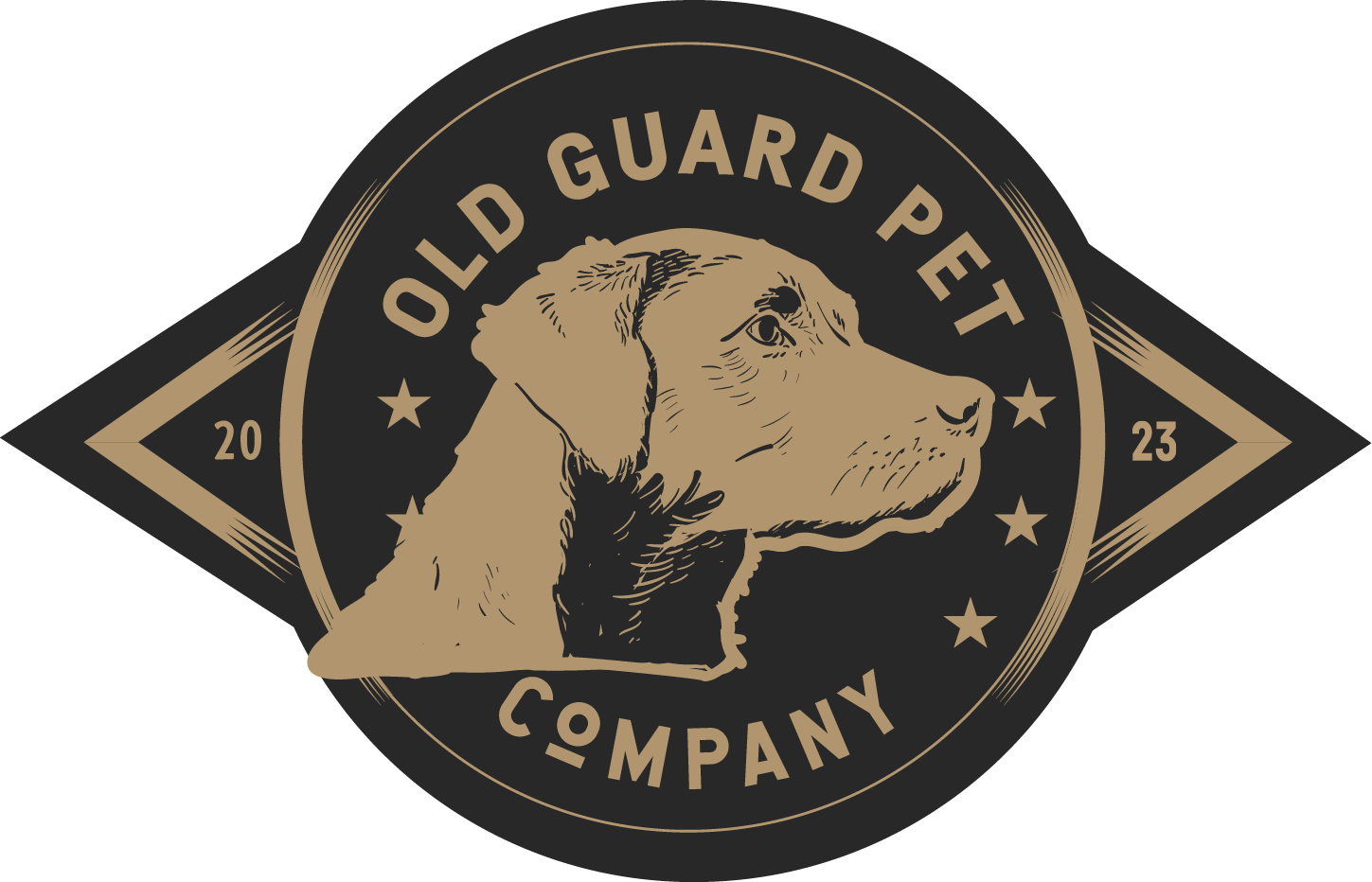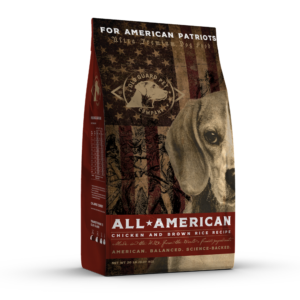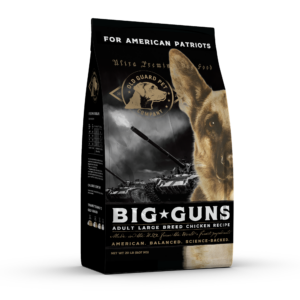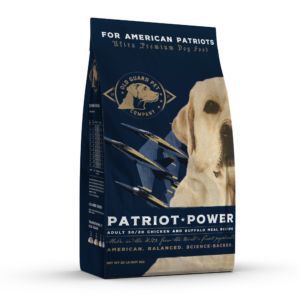At Old Guard, one of our main priorities is balance. We have all heard about the importance of eating a balanced diet to ensure we are getting the proper nutrition and the same is true for your dogs and their diet. In this blog, we will talk about the importance of a balanced diet for your dog, not only in each recipe we design but in each bite. A nutritious and well-balanced diet is important to your dog’s health because it provides them with the necessary nutrients, vitamins, and minerals needed to function properly. In this blog post we will review the benefits of a balanced diet, the ways that nutrients can work together either synergistically (good) or competitively (bad), learn about the importance of proper cooking to ensure our diets are adequately digested and designed to optimize the health benefits for your dog.
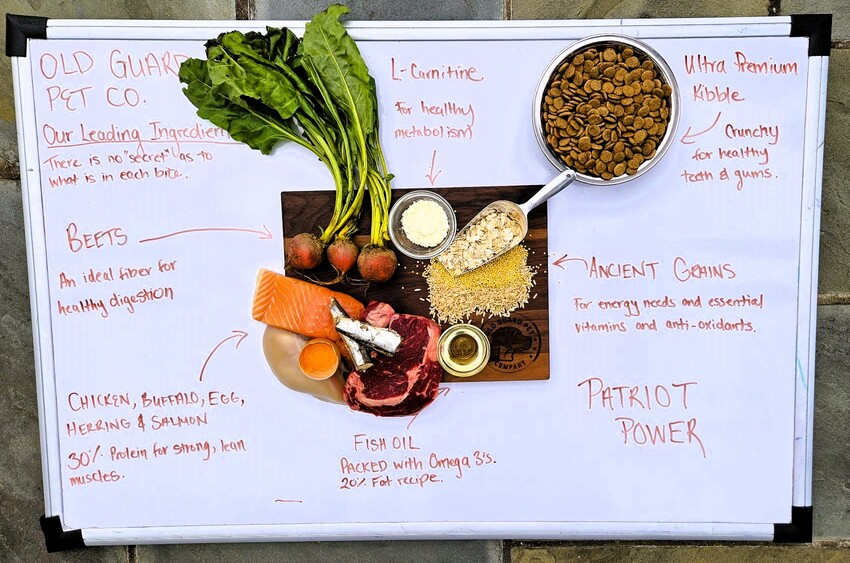 Health benefits are most efficiently delivered to your dog through a balanced meal
Health benefits are most efficiently delivered to your dog through a balanced meal
Ensuring that your dog consumes the right amount of essential amino acids (protein), fatty acids (fat), vitamins, and minerals is critical. Each of these nutrients plays a specific role and must work in harmony to support whole-body health, including energy and vitality, weight management, digestion, cognitive function, and strong bones and teeth.
Nutrients can work synergistically (i.e., enhance the positive effect of one another) or they can work competitively with one another
Here are a few way nutrients work synergistically:
- Nutrient absorption: Some nutrients require the presence of other nutrients for optimal absorption in the body. For instance, vitamin D enhances the absorption of calcium.
- Antioxidant activity: Antioxidants, like vitamins E and C, can work together to enhance their antioxidant capabilities.
- Vitamin activation: Some vitamins need specific coenzymes or minerals to be activated and perform their functions in the body. For instance, zinc is necessary for the activation of vitamin A.
- Nutrient sparing: In some cases, the dog’s body can use less of an essential nutrient if another, perhaps non-essential or more available nutrient can be used, this is called the nutrient-sparing effect. For example, methionine is an essential amino acid (part of a protein), and non-essential nutrients, including cysteine and taurine, can promote methionine sparing by acting as a substitute for methionine in some specific functions.
- Synergistic health effects: Some nutrients work together to produce combined health benefits. Calcium is essential for bone structure, magnesium aids in calcium absorption, and vitamin D helps with calcium utilization and absorption.
Here are a few examples of how nutrients may compete with one another:
- Compete for digestive absorption: Iron and calcium or Zinc and Copper compete for absorption in the intestines. For example, high calcium intake from supplements can block the absorption of iron from plant-based sources or supplements.
- Metabolic interference: Certain B vitamins, such as vitamin B12, folate, and vitamin B6, work together in several metabolic pathways. However, excessive intake of one B vitamin can interfere with the absorption or metabolism of others.
It’s worth noting that these competitive interactions are usually observed when nutrient intake is significantly imbalanced or when high-dose supplements are involved.
Old Guard Pet Company leverages longstanding and new scientific data, a deep understanding of the intricacies of nutrient requirements and interactions, and the impact of ingredients on these interactions to formulate a highly digestible recipe in which the nutrients are available for the dog. We also test all of our diets with 3rd parties to ensure we are meeting these nutritional targets.
Cooking method can impact nutrient balance and availability
Many vegetable and legume ingredients contain anti-nutritional factors that naturally occur in certain ingredients used in dog foods. Anti-nutritional factors can potentially interfere with the absorption or utilization of essential minerals or decrease protein digestibility in the dog’s body. It’s important to note that the presence of anti-nutritional factors does not necessarily mean they should be avoided in your dog’s diet. Many of these factors also have beneficial properties and can be deactivated or reduced through various cooking and processing methods. Early evidence suggests that raw or gently cooked meals may not efficiently halt some of these anti-nutritional factors. More research is needed to understand how novel cooking methods impact digestion and anti-nutritional status.
However, overcooking can lead to the presence of Maillard products which, in excess, can negatively impact nutrient availability by reducing protein digestibility or reducing heat-sensitive vitamins and minerals. A properly cooked kibble should help mitigate many of these factors.
Old Guard uses a slow cooking method and conducts 3rd part testing to ensure all our diets are properly cooked, and digestible, meet our nutritional targets, and avoid many of the common pitfalls laid out above.
Balance is imperative to ensure your dog is getting the nutrition they need
At Old Guard, we understand the importance of ensuring each bite of food is perfectly balanced for your dog. Unlike other brands, we do not recommend supplementing your dog’s food (unless required by a veterinarian) since this can impact nutrient and calorie balances. Also, unlike other brands, we don’t include imbalanced “pieces” in our recipes. These are becoming a common addition to kibble (e.g., “meaty pieces”, “raw boosters”, “freeze-dried veggies” or “bits”) but it can be impossible to control the amount eaten in each meal, thereby impacting the balance of the recipes and your dog’s nutrient intake. With Old Guard all recipes are carefully designed by our PhD owner, considering the above, to ensure that each bite is balanced so you don’t have to worry about supplementing or watching exactly what pieces your dog is eating from the bowl.
Five Dog Food Nutrition Secrets From a PhD
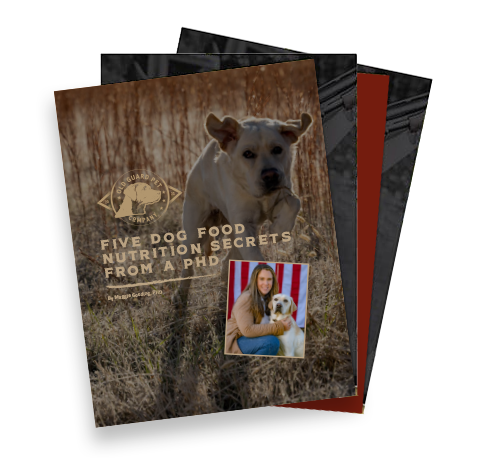
With so much information floating around out there on dog nutrition, how can you be sure you have the facts? In this guide, Founder Maggie Gooding, PhD, in Animal Nutrition and Behavior, with over a decade experience in R&D working on some of the largest pet food brands share five nutrition secrets to help your dog live a longer healthier life.
Get the inside scoop on:
- Nutrients
- Energy Balance
- Weight Control
- Dog Eating Habits
- Fibers and Fillers
Download by filling the form out below:
